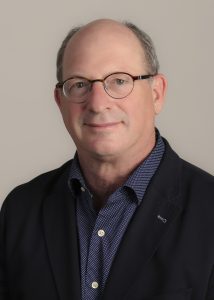Hereditary Breast Cancer Researcher Receives Prestigious Award
September 12/2023
Renowned hereditary breast cancer researcher Steven Narod, a full professor at the Dalla Lana School of Public Health (DLSPH) and the Department of Medicine at the University of Toronto, has been awarded the 2023 McLaughlin Medal from the Royal Society of Canada (RSC). The award recognizes important research of sustained excellence in any branch of medical sciences.
By Bonnie O’Sullivan
 Narod, a Tier 1 Canada Research Chair in Breast Cancer and senior scientist at Women’s College Research Institute, is renowned for his research on the BRCA1 and BRCA2 genes, that when mutated, substantially increase a woman’s lifetime risk of breast or ovarian cancer. His current research focuses on the efficacy of treatment options for women with BRCA1 mutations and breast cancer.
Narod, a Tier 1 Canada Research Chair in Breast Cancer and senior scientist at Women’s College Research Institute, is renowned for his research on the BRCA1 and BRCA2 genes, that when mutated, substantially increase a woman’s lifetime risk of breast or ovarian cancer. His current research focuses on the efficacy of treatment options for women with BRCA1 mutations and breast cancer.
The McLaughlin Medal recipient says it is motivating to be recognized by his peers with this reward. “It’s nice to know that the work is really having impact,” he says.
His research into hereditary breast cancer began at the International Agency in Research in Cancer in Lyon, France, in 1987, and then continued upon his return to Canada in 1990, first at McGill University, and then the University of Toronto starting in 1995. Narod is credited as a co-discoverer of the BRCA1 and BRCA2 genes and has studied the distribution of mutations worldwide since their discoveries. He says that one of his earliest proud moments was his major paper linking breast and ovarian cancer.
With such an accomplished career, Narod asserts it is the community of researchers and his drive to find answers that motivates him. “I enjoy working with my students and my fellows. I enjoy being part of an active community here at the University of Toronto. I like hearing the work that others do and seeing the success of younger colleagues. The ultimate goal is I’d like to see an effective treatment for hereditary breast cancer.”